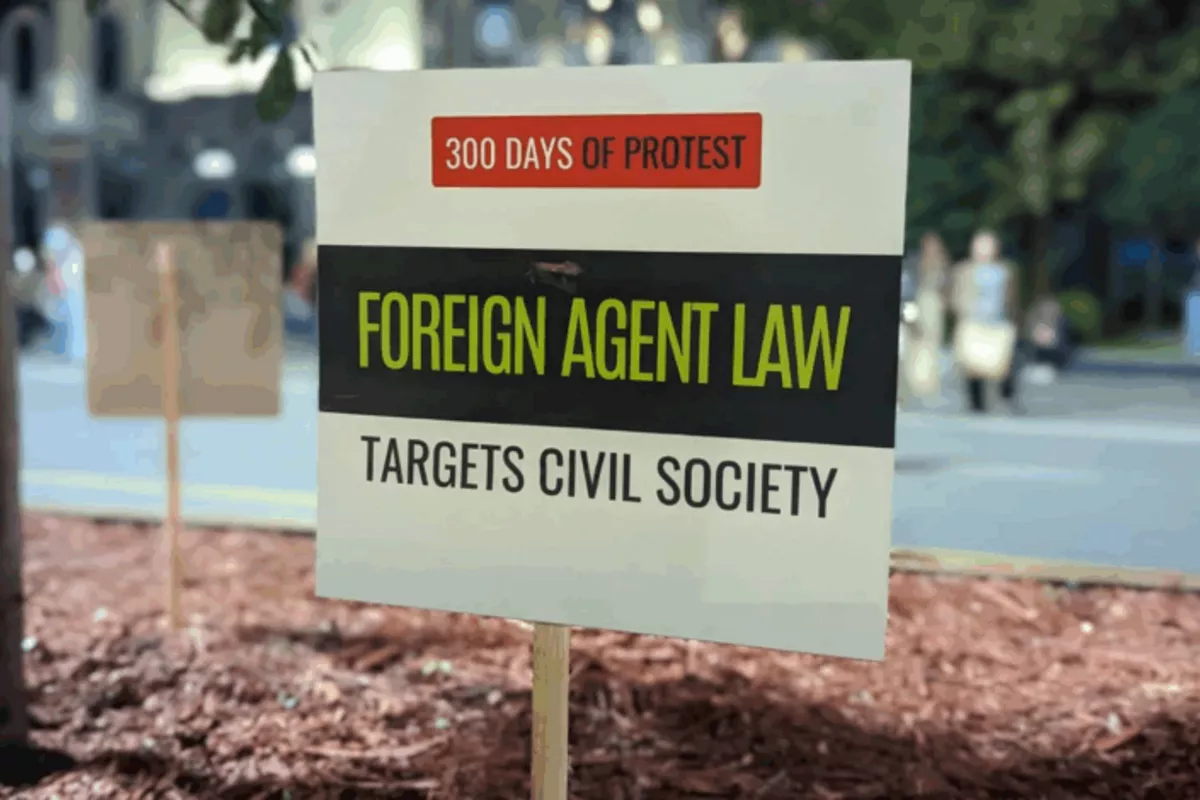
Photo: Nini Gabritchidze/Civil.ge
The Venice Commission, an expert body of the Council of Europe on constitutional law, released an opinion criticizing Georgia’s newly enacted laws targeting foreign funding for media and civil society organizations.
The commission called for the repeal or revision of the controversial provisions, The Caspian Post reports citing Civil Georgia.
The 24-page document, published on October 15 and prepared at the request of the Monitoring Committee of the Parliamentary Assembly of the Council of Europe (PACE), reviewed the Georgian version of the Foreign Agents Registration Act (FARA), as well as recent amendments to the Law on Grants, the Law on Broadcasting, and the Law on Political Associations. All four were passed during the spring session in the one-party parliament.
The Commission called to repeal Georgian FARA and the foreign funding ban for broadcasters, while recommending the repeal or at least “thorough revision” of the amendments to the grants law requiring foreign donors to seek government consent before allocating local grants. The document, on the other hand, said that the bans on in-kind foreign support for political parties “fall within the permissible national margin of discretion.” It also noted that the Anti-Corruption Bureau, which has been entrusted with implementing”several of these laws, “lacks sufficient safeguards for independence and political neutrality.”
The official press release said the Commission has analysed these series of legislative acts “through a systemic approach, to take into account the combined effect of simultaneously applicable laws on the same entities and individuals.” The Commission noted that “where existing provisions of domestic legislation have proved to be insufficient to achieve a legitimate aim, the authorities should seek to amend and improve them, rather than adopting new laws.”
In its opinion, the Venice Commission expressed regret that Georgian authorities “have not wished to engage with it in the preparation of this opinion”. It said the Commission “remains at their disposal for pursuing their concerns in a manner which is in line with international standards.”
Foreign Agents Registration Act (FARA)
According to the opinion, the legal regime imposed by Georgian FARA, which took effect in spring and of which Georgian Dream claims to have copied from the U.S. legislation, “risks undermining the rule of law, civic space, and democratic freedoms.” Together with the Law on Transparency of Foreign Influence adopted last year, “it generates further confusion and uncertainty,” the body says, calling for the repeal of the controversial law.
“The combination of vague provisions, sweeping powers, and insufficient safeguards creates risks of arbitrariness, selective justice, and political misuse,” the document reads.
The document further argues that Georgian FARA “provides sweeping and imprecise definitions of key terms, most notably ‘foreign principal’, ‘agent of a foreign principal’, and ‘political activities’. The lack of clarity and precision undermines foreseeability and legal certainty.” It notes that the law’s far-reaching scope “enables its indiscriminate application to an extensive range of persons and organisations, irrespective of the existence of any actual agency relationship with a foreign actor, in a manner that appears neither necessary nor proportionate.”
The Commission brushed aside the claims voiced by the Georgian officials that the law conforms to democratic principles, because it is an exact copy of the U.S. law, by arguing, “What matters is not only the statutory text, but also the underlying legal principles, the relevant case-law, the institutional framework within which the statute operates. For this reason, the Commission notes that the authorities’ reliance on the US FARA as an ‘exact analogue’ cannot in itself support the compatibility of GEOFARA with international standards.”
The Venice Commission also criticised the “agents of foreign principals” label as “inherently stigmatising, producing a chilling effect on freedom of expression and
According to the opinion, obligations imposed by law on “agents of a foreign principal” contain “wide and open-ended formulations, and constitute an intrusive and disproportionate burden, further discouraging civic engagement.” The document further states that the Anti-Corruption Bureau, tasked with enforcing the law, “is entrusted with excessive discretion, despite lacking sufficient guarantees of independence and political neutrality.”
The Venice Commission said that in the case of FARA, which foresees criminal liability, “the broadly framed provisions describing the offence permit loose interpretation and lack the requisite foreseeability and justification, while the severe sanctions fail to meet the standard of proportionality.”
Share on social media